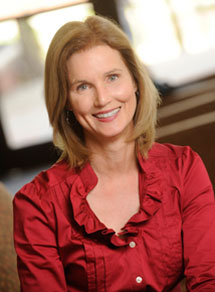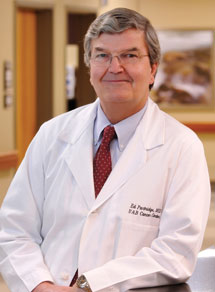UAB Experts Lead the Fight Against Heart Disease and Cancer
 Donna Arnett is on track to become the first epidemiologist to lead the American Heart Association.
Donna Arnett is on track to become the first epidemiologist to lead the American Heart Association.
UAB has accomplished another first—and a sixth. Donna Arnett, Ph.D., named president-elect of the American Heart Association (AHA) in June, is on track to become the first epidemiologist to lead the organization and the sixth UAB faculty member to hold the top spot.
Epidemiologists study the patterns of disease—what causes them, how they spread, and how they can be controlled. “The election of an epidemiologist really fits well with the AHA’s mission of building healthier lives free of cardiovascular disease and stroke,” says Arnett, who chairs UAB’s Department of Epidemiology in the School of Public Health.
Perception and Prevention
Her mission as president-elect is to “push the agenda of prevention,” she says. “Recently the AHA discovered that 39 percent of Americans think they are in ideal health, but when you actually count the statistics—their diet, weight, and amount of exercise—less than 1 percent is in ideal health. My goal is to change that.” Arnett hopes to make a measurable impact in Alabama, which has an AHA health profile that ranks “second to last, just behind Mississippi, in diabetes, obesity, high hypertension, stroke, and cardiovascular disease rates,” she says.
In her new role, Arnett also will represent the AHA at various national meetings and work with the incoming AHA president and the immediate past president to handle strategy issues. She will begin her yearlong term as AHA president in July 2012.
Arnett has been involved with the AHA for 20 years, most recently serving as president of the Greater Southeast Affiliate of the AHA, which represents six states, Puerto Rico, and the United States Virgin Islands. She also has led the AHA national research committee and the scientific publishing committee.
Saving Lives from Cancer
 After volunteering with the American Cancer Society for more than 30 years, Edward Partridge is currently serving as president of its National Board of Directors.While Arnett makes plans for her national leadership role, Edward Partridge, M.D., is finishing his. Last November, the director of UAB’s Comprehensive Cancer Center became president of the American Cancer Society (ACS) National Board of Directors. His one-year term has overlapped with an ACS plan to increase the number of lives saved from cancer to 1,000 each day.
After volunteering with the American Cancer Society for more than 30 years, Edward Partridge is currently serving as president of its National Board of Directors.While Arnett makes plans for her national leadership role, Edward Partridge, M.D., is finishing his. Last November, the director of UAB’s Comprehensive Cancer Center became president of the American Cancer Society (ACS) National Board of Directors. His one-year term has overlapped with an ACS plan to increase the number of lives saved from cancer to 1,000 each day.
“It’s a privilege and honor to be part of an organization that—partly because of some work we’ve done at UAB—helps avert 340 cancer deaths each day,” Partridge says. “But there is much more we can do. We’re looking at our programs and how we deliver them to really make a difference in people’s lives.”
A Promising Future
Partridge, who is known nationally for his expertise in women’s cancer and his work to reduce race- and ethnicity-based cancer disparities in the Deep South, has volunteered with the ACS for more than 30 years and served as chair of its Mid-South Division. The breakthroughs he has seen over the decades point to a promising future for cancer prevention and treatment.
“We have the knowledge to prevent approximately 70 percent of cancer deaths in the United States by eliminating smoking or reducing rates to single digits, providing age-appropriate screening to our entire population, and assuring healthy diets and physical activity in a substantial portion of our population,” Partridge says. In addition, “technical advances have provided tools to eventually unravel the complex cancer development pathways. They will give us specific targets to modify and arrest or reverse the carcinogenic process.
“Cancer will be eliminated as a major public-health problem this century—probably in the first 50 years,” Partridge says. “How fast it occurs is limited only by the nation’s investment in cancer programs.”